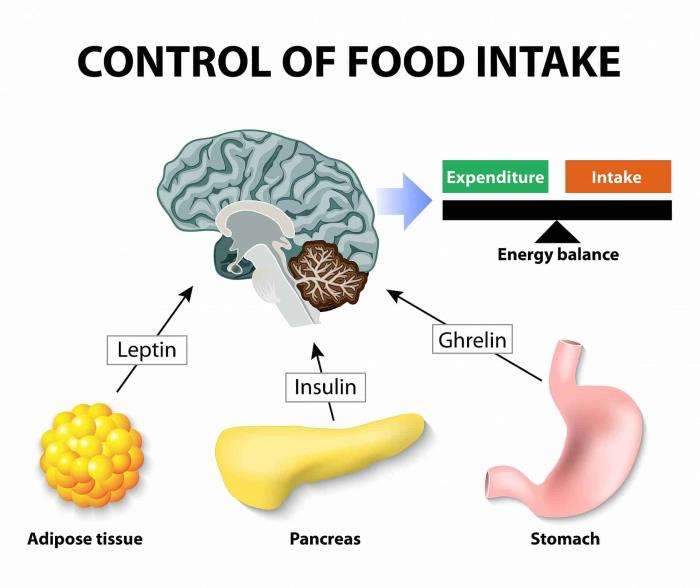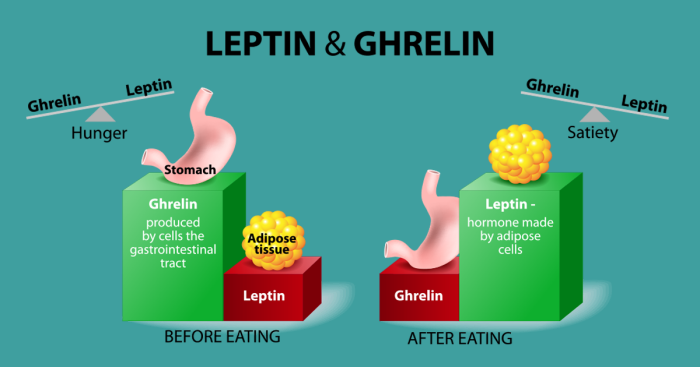Hunger and satiety are primarily regulated by two key hormones: ghrelin and leptin. Ghrelin, often referred to as the "hunger hormone," signals the brain to stimulate appetite, while leptin helps to regulate satiety, signaling when the body has had enough food. These hormones work in concert to maintain balance in food intake and energy expenditure. After bariatric surgeries like sleeve gastrectomy, the balance of these hormones is significantly impacted, helping patients manage hunger more effectively, which contributes to weight loss and improved metabolic health.
Medical disclaimer: This content is for general awareness and does not replace a doctor’s consultation. For diagnosis or treatment decisions, consult a qualified specialist.
How Sleeve Gastrectomy Affects Ghrelin Production
Ghrelin is produced in the stomach, particularly in the fundus, the upper portion of the stomach. Since sleeve gastrectomy involves the removal of a large portion of the stomach, including the fundus, it leads to a significant reduction in ghrelin production. As a result, patients often experience a reduction in hunger and cravings following surgery. This decrease in ghrelin helps to promote a feeling of fullness and reduces the urge to overeat, which is one of the key benefits of sleeve gastrectomy in supporting weight loss.
The Role of Ghrelin in Appetite and Hunger
Ghrelin plays a crucial role in stimulating appetite. It is released into the bloodstream when the stomach is empty, signaling to the brain that it’s time to eat. As ghrelin levels rise, hunger increases, prompting individuals to seek food. Conversely, when the stomach is full, ghrelin production decreases, helping to signal satiety and reduce the desire to eat. This cyclical release of ghrelin is integral to regulating food intake and maintaining energy balance in the body.

The Impact of Sleeve Gastrectomy on Ghrelin Levels
One of the significant outcomes of sleeve gastrectomy is the reduction in ghrelin levels. The removal of the stomach’s fundus during the surgery results in a drastic decrease in ghrelin production. As a result, many patients experience a noticeable reduction in appetite, which helps them adhere to their post-surgery diet and prevent overeating. This reduction in hunger is one of the reasons why sleeve gastrectomy is effective in helping individuals achieve significant and sustained weight loss.
Leptin: The Hormone That Regulates Satiety
Leptin, often referred to as the "satiety hormone," is responsible for signaling the brain to reduce appetite and increase energy expenditure when fat stores are adequate. Produced primarily by fat cells, leptin levels are typically higher in individuals with more body fat, and they help regulate body weight by promoting feelings of fullness after eating. Leptin’s role in controlling long-term energy balance makes it an essential player in weight management.

How Sleeve Gastrectomy Alters Leptin Sensitivity
Although sleeve gastrectomy does not directly impact leptin production, it can alter leptin sensitivity. After surgery, many patients experience a reduction in overall body fat, which can lead to a change in how the brain responds to leptin signals. Increased sensitivity to leptin may enhance the feeling of fullness and contribute to better weight management, as the brain becomes more responsive to the satiety signals leptin provides, encouraging reduced food intake.
The Role of Sleeve Gastrectomy in Reducing Hunger and Food Intake
By reducing ghrelin levels and potentially improving leptin sensitivity, sleeve gastrectomy plays a crucial role in controlling hunger and food intake. The decrease in hunger signals makes it easier for patients to adhere to portion-controlled eating, reducing the likelihood of overeating. This hormonal shift, combined with the physical restriction created by the smaller stomach, helps patients manage their weight effectively by fostering a natural decrease in appetite and a greater sense of fullness, which are critical for long-term success after surgery.
Appetite Control After Sleeve Gastrectomy: What to Expect
After sleeve gastrectomy, patients can expect significant changes in appetite regulation due to the removal of a portion of the stomach, particularly the area that produces the hunger hormone ghrelin. This reduction in ghrelin often leads to decreased hunger, making it easier to control portion sizes and stick to a healthier eating routine.
The Psychological Impact of Controlled Hunger After Surgery
The reduction in hunger hormones can have a profound psychological impact, helping patients avoid constant food cravings and emotional eating. However, it may also require mental adjustments, as individuals need to develop new strategies for dealing with emotional triggers that previously led to overeating.
How Sleeve Gastrectomy Helps Improve Portion Control
By reducing the stomach’s capacity and altering hunger hormones, sleeve gastrectomy helps patients control portion sizes. With less space in the stomach, patients feel fuller after smaller meals, which encourages healthier eating patterns and supports weight loss.
The Long-Term Effect of Sleeve Gastrectomy on Hunger Regulation
Over time, patients may notice more consistent and stable hunger signals. Though some may experience a gradual return of appetite, most will find that their hunger is significantly more manageable compared to pre-surgery levels, contributing to sustained weight loss.
Balancing Hunger Hormones for Successful Weight Loss
Achieving successful long-term weight loss after sleeve gastrectomy involves balancing hunger hormones like ghrelin, which is reduced post-surgery, and leptin, which plays a role in satiety. Proper dietary choices, exercise, and regular follow-ups with healthcare providers are essential for maintaining this balance.
The Role of Diet in Supporting Hormonal Balance Post-Surgery
A balanced diet rich in protein, fiber, and healthy fats can further support the hormonal changes induced by sleeve gastrectomy. These foods help manage hunger, stabilize blood sugar, and prevent overeating, all of which are critical for long-term success after surgery.
How Ghrelin Reduction Contributes to Post-Surgery Weight Loss
The significant reduction in ghrelin levels after sleeve gastrectomy directly contributes to weight loss by decreasing the urge to eat. This makes it easier for patients to maintain calorie deficits, facilitating consistent weight reduction without the constant battle against hunger.
The Science Behind Hormonal Changes After Sleeve Gastrectomy
During sleeve gastrectomy, the stomach is reshaped, leading to a reduction in the production of hunger hormones, particularly ghrelin. This hormonal shift is a key factor in helping patients reduce food intake and regulate their appetite in the months and years following surgery.
Why Hunger Hormones Can Affect Your Success After Surgery
Hunger hormones play a significant role in post-surgery weight loss. Ghrelin, which stimulates hunger, is reduced, while hormones like peptide YY and GLP-1, which promote feelings of fullness, increase. This shift makes it easier for patients to maintain a reduced calorie intake and adhere to their weight loss goals.
Managing Emotional Eating and Hunger Post-Surgery
Despite reduced hunger, emotional eating may still be a challenge for some patients. Strategies such as mindfulness, therapy, and developing healthier coping mechanisms are crucial in managing emotional triggers and ensuring long-term success.
How Sleeve Gastrectomy Leads to Better Appetite Regulation
By reducing the stomach's capacity and altering hunger hormone production, sleeve gastrectomy helps patients better regulate their appetite, making it easier to adopt healthy eating habits and achieve sustainable weight loss.
The Role of Exercise in Complementing Hormonal Changes
Exercise plays a key role in complementing the hormonal changes after sleeve gastrectomy. Regular physical activity helps maintain muscle mass, boosts metabolism, and further stabilizes hunger hormones, supporting long-term weight management.
Understanding Hormonal Changes as Part of the Sleeve Gastrectomy Process
Hormonal changes after sleeve gastrectomy are a natural part of the process and significantly contribute to appetite control and weight loss. Patients should understand that these changes, while beneficial, may require adjustments in their lifestyle, including diet, exercise, and psychological support.
Best Sleeve Gastrectomy Surgery in India
The Best Sleeve Gastrectomy Surgery in India offers an effective weight-loss solution by reducing stomach size, helping patients achieve significant and sustainable weight loss with minimal risks.
Best Sleeve Gastrectomy Hospitals in India
The Best Sleeve Gastrectomy Hospitals in India provide state-of-the-art facilities and experienced medical teams, ensuring excellent care and support throughout the patient’s weight-loss journey.
Sleeve Gastrectomy Surgery Cost in India
The Sleeve Gastrectomy Surgery Cost in India is affordable and transparent, offering patients access to high-quality care at competitive prices, with comprehensive treatment packages.
Best Sleeve Gastrectomy Surgeons in India
The Best Sleeve Gastrectomy Surgeons in India are renowned for their expertise and precision, providing personalized care and advanced techniques to ensure successful outcomes.
FAQ Section
1. What are the main hunger hormones affected by sleeve gastrectomy?
Ghrelin, the primary hunger hormone, is significantly reduced after sleeve gastrectomy. Other hormones like peptide YY and GLP-1, which promote satiety, may increase post-surgery.
2. How does sleeve gastrectomy reduce ghrelin levels?
By removing a portion of the stomach where ghrelin is primarily produced, sleeve gastrectomy leads to a substantial reduction in ghrelin levels, which decreases the sensation of hunger.
3. Why does sleeve gastrectomy help control hunger and appetite?
The surgery removes part of the stomach, reducing the production of hunger-inducing hormones and increasing satiety hormones, which together help control appetite and reduce overeating.
4. How long does it take for hunger hormones to stabilize after surgery?
Hunger hormones typically begin stabilizing within a few weeks to months after surgery, with most patients experiencing significant improvements in appetite control during the first year post-surgery.
5. What role does leptin play in controlling hunger after sleeve gastrectomy?
Leptin, a hormone that signals satiety, may also be affected after surgery, potentially increasing feelings of fullness and helping to control appetite by regulating energy balance.
Experiencing a weight loss plateau after sleeve gastrectomy can be frustrating, but it's a common phase in the weight loss journey. To overcome this, consider reassessing your diet with your dietician, increasing physical activity, and staying hydrated. Focus on high-protein foods to preserve muscle mass and small, frequent meals to keep your metabolism active. Regularly monitor your progress through methods other than the scale, such as body measurements or how your clothes fit. Remember, patience and persistence are key to breaking through the plateau and continuing your weight loss journey. Managing Weight Plateaus After Sleeve Gastrectomy Surgery
Endoscopy plays a crucial role in both the pre-operative evaluation and post-operative management of sleeve gastrectomy patients. Pre-operatively, endoscopy helps assess the stomach's condition and identify any abnormalities that might affect the surgery. Post-operatively, endoscopy is essential for diagnosing and managing complications such as leaks, strictures, and gastroesophageal reflux disease (GERD). It allows for minimally invasive interventions, reducing the need for additional surgeries and improving patient outcomes. The Role of Endoscopy in Sleeve Gastrectomy Surgery
After sleeve gastrectomy surgery, patients are at a higher risk of nutrient deficiencies due to reduced food intake and changes in digestion. Bariatric vitamins play a crucial role in preventing these deficiencies and ensuring overall health. A complete multivitamin with iron is typically recommended, along with specific supplements like vitamin D, calcium, vitamin B12, folate, zinc, and copper. These vitamins and minerals help maintain bone health, prevent anemia, support neurological function, and promote overall well-being. The Role of Bariatric Vitamins After Sleeve Gastrectomy Surgery